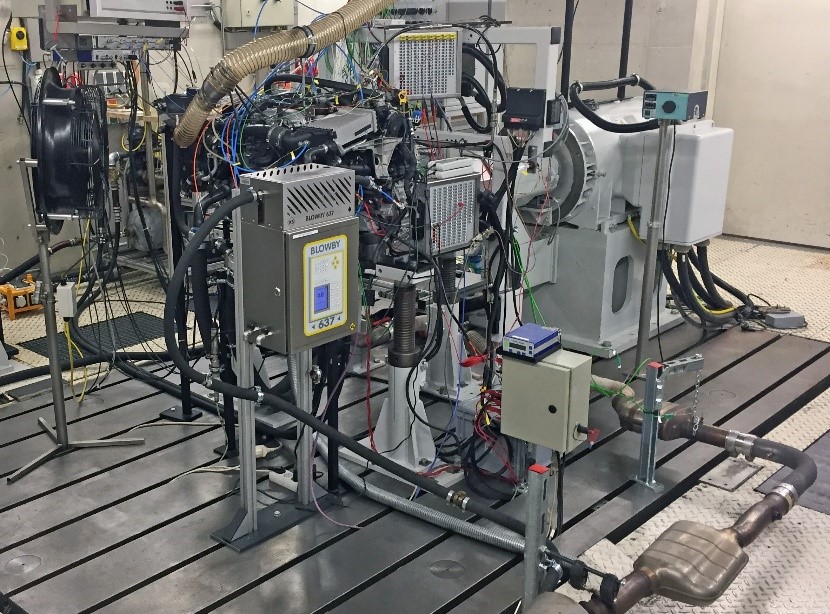Hydrogen Combustion Engine
Hydrogen is ideal as a fuel for internal combustion engines. Compared to fuel cells, a combustion engine is more robust and cheaper than a fuel cell, and there are other clear advantages, especially for heavy vehicles. H2 engines have been a strategic research focus at FVT for almost 20 years.
The origin of all research is the unusual properties of H2. On the one hand, its low density makes mixture formation more difficult and requires turbocharging. On the other hand, the wide ignition limits and the low ignition energy make it prone to combustion anomalies. The latter, however, are also the reason for the great flexibility in the combustion control.
The FVT meets the challenge with a wide range of tools. The engine test bench is usually the focus. Single-cylinder and multi-cylinder engines (e.g. hydrogen engines for racing) with different capacities were and are used. Particularly noteworthy is an optically accessible research engine that enables the processes in the combustion chamber to be visualized. Many different simulation tools serve to deepen the understanding and complement the experiments. Zero, one and three-dimensional approaches are available.
The difficult mixture formation with H2 is of particular importance at the FVT. The many variants examined include internal, external, cryogenic and gaseous mixture formation with pressure levels, injector designs and positions. Continuous further development has made it possible to significantly reduce the previously known performance disadvantage of hydrogen engines.
The widespread use of hydrogen engines in series production has never been more likely than it is now. The most recent research therefore increasingly focuses on questions of suitability for everyday use. The focus is now on the robustness of the combustion process, transient operation, service life and exhaust gas aftertreatment.
